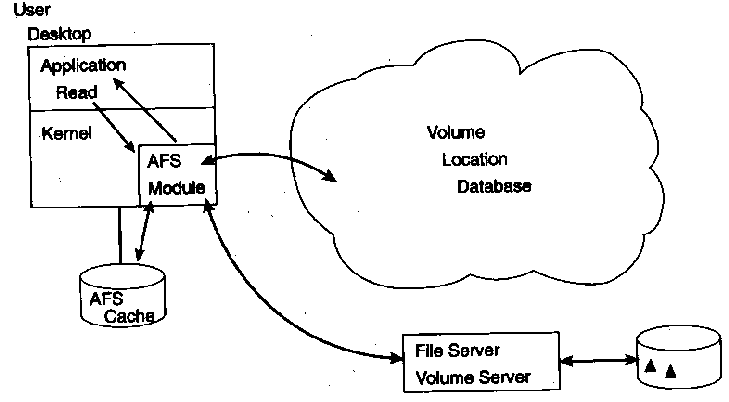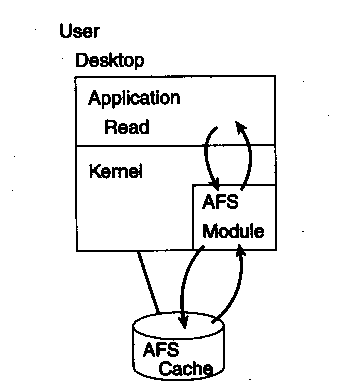


| Text-only | Table of Contents (frame/ no frame) |
| (4) Filesystem differences |



|
AFS implements write on close to improve the efficiency of the local cache. This means that when a file is opened for writing, data is first written to the local cache, and the server copy is not updated until the file is closed. Another process on the same client can see the partially written file. The client cache manager can be tuned to improve performance for particular types of files.
The initial open (for read or write) of a file entails database lookups to
determine the volume location and permissions. The file and metadata are copied to local cache and
then made available to the application.

Figure 2. Client read - initial connection.

Figure 3. Client read - subsequent open of same file.
If reading, the AFS server will tell the client (callback) if the
server copy of the file changes. If it is unchanged, subsequent reads of the same file
involve only local disk cache and so are much faster.
Read/write Performance is very dependant on the client hardware speed and
cache configuration. Very occasionally problems might arise due to cache inconsistencies.
The following commands (subcommands of fs) can be used to remove stale
cache data.
fs_flush
fs_flushvolume
Scratch or temporary files used by programs should in most circumstances be
placed on local disk for best performance. Sometimes applications may default to writing
scratch files in the user's home directory, but can be configured to use other locations.
Permission bits
The traditional Unix permission bits are largely ignored by AFS. Only the user write and
execute bits are meaningful. All other access control is determined by the directory ACL.
Special files
AFS does not support device special files or named pipes.
| filesystem-differences.src last modified Jun 9, 2005 | Introduction | Table of Contents (frame/no frame) |
Printable (single file) |
© Dartmouth College |